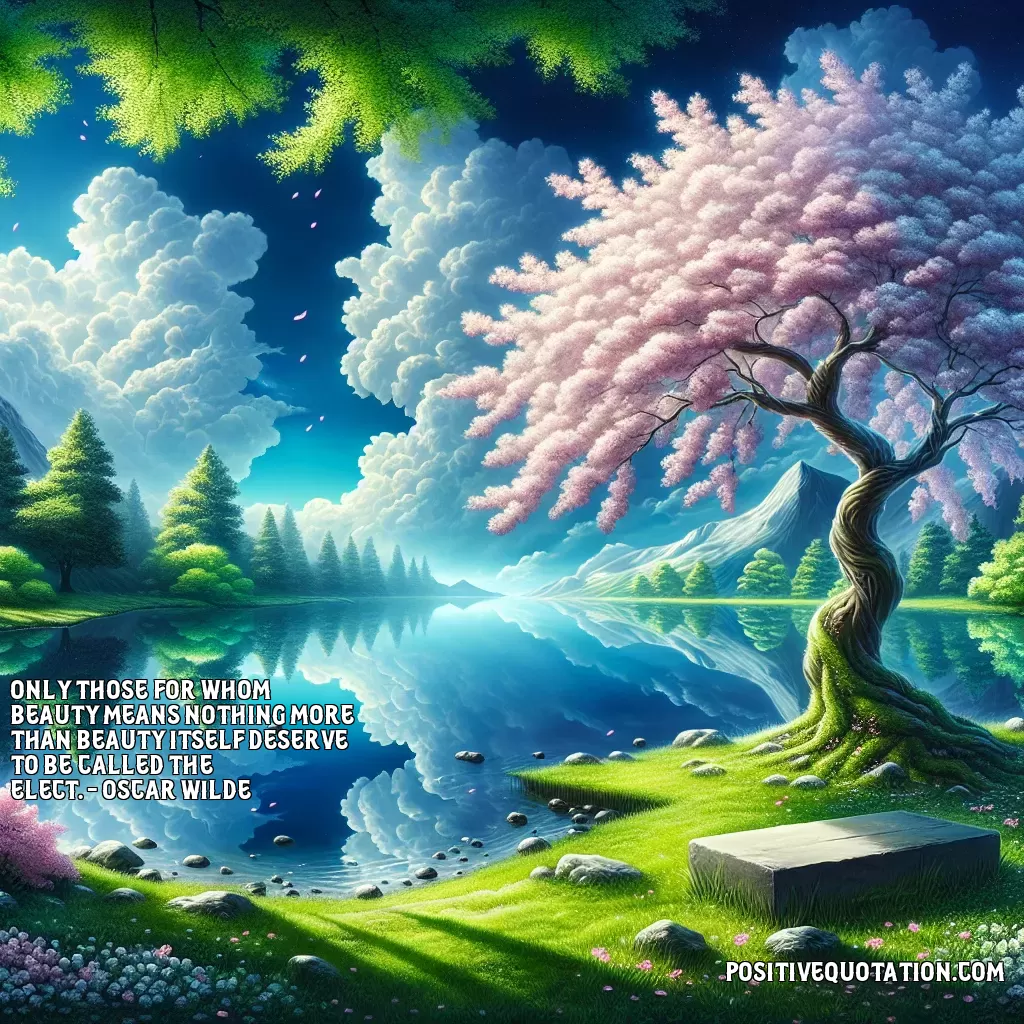
Only those for whom beauty means nothing more than beauty itself deserve to be called the elect. - Oscar Wilde

Only those for whom beauty means nothing more than beauty itself deserve to be called the elect. - Oscar Wilde
Oscar Wilde’s quote, "Only those for whom beauty means nothing more than beauty itself deserve to be called the elect," speaks to the profound and often paradoxical nature of aesthetic appreciation. To unpack this, we must first consider Wilde’s perspective on beauty and art. Wilde, a proponent of the Aesthetic Movement, believed in "art for art’s sake," suggesting that art and beauty should not be sullied by utilitarian functions or moralistic agendas. They have inherent value and should be appreciated as such. The "elect" in Wilde's quote refers to the people who truly appreciate the intrinsic value and purity of beauty. For these individuals, beauty is not a tool or a means to an end; it is sufficient in itself. This appreciation requires a heightened sensibility and purity of perception that goes beyond material or superficial desires. Wilde critiques those who might see beauty as a mere vehicle for purposes such as status enhancement, moral instruction, or profit. He seems to suggest that true connoisseurs of beauty, those who are "elect," engage with beauty in a direct and unmediated manner. They grasp its essence without assigning ulterior motives or interpretations. Ultimately, Wilde is advocating for a perspective that respects and reveres the autonomy of beauty. He challenges us to view beauty not as a component of something greater, but as an ultimate, self-sufficient experience. In doing so, Wilde elevates the appreciation of beauty to a near-spiritual undertaking, reserved for those who can recognize its unique and autonomous value.
Quote By: Oscar Wilde
Oscar Wilde was an Irish playwright, poet, and novelist, born on October 16, 1854, in Dublin, Ireland. Renowned for his wit and flamboyant style, he is best known for his plays such as "The Importance of Being Earnest" and his novel "The Picture of Dorian Gray." Wilde's life was marked by both literary success and personal scandal, culminating in his imprisonment for "gross indecency" due to his homosexuality, after which he lived in exile until his death on November 30, 1900.
Bio added on: 2025-02-15 22:07:53